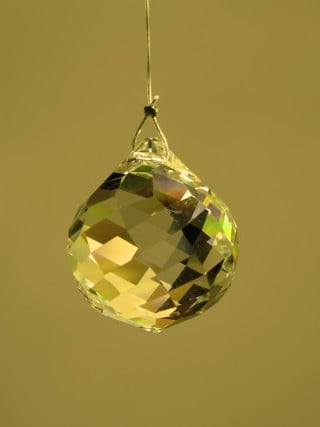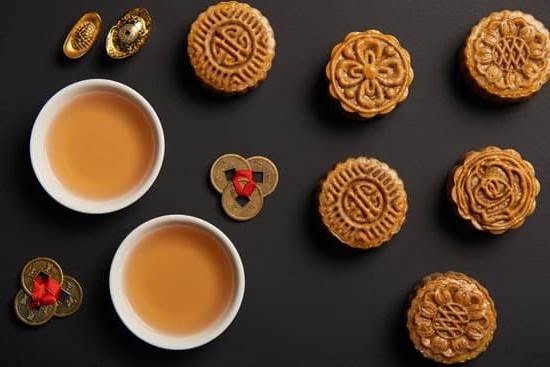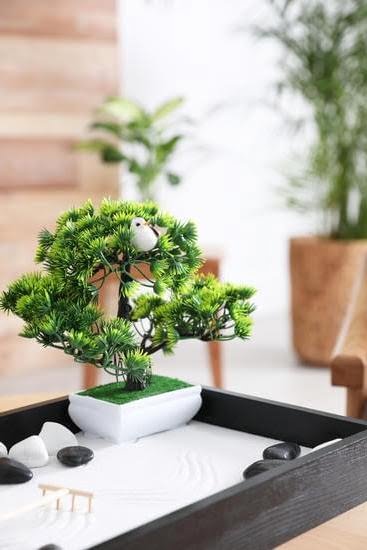House Feng Shui has been an integral part of Filipino culture, influencing the layout and design of homes for centuries. The practice, stemming from ancient Chinese beliefs, emphasizes the harmonious arrangement of living spaces to optimize energy flow and promote balance. In the Philippines, House Feng Shui plays a significant role in guiding homeowners on creating environments conducive to prosperity and well-being.
Tracing back the history of Feng Shui in the Philippines reveals a rich tapestry of traditions and beliefs that have been passed down through generations. This cultural heritage has evolved over time, adapting to Philippine sensibilities while still holding true to its core principles. Understanding the origins of Feng Shui in Filipino culture provides valuable insights into its enduring importance and influence on contemporary living spaces.
The relevance of House Feng Shui in the Philippines cannot be overstated, as it directly impacts the energy dynamics within homes. By incorporating Feng Shui principles into household design and décor, Filipino homeowners seek to enhance not only their physical surroundings but also their overall quality of life. Exploring the basic concepts and practices of House Feng Shui opens up a world of possibilities for creating spaces that promote harmony, abundance, and positive energy flow.
History of Feng Shui in the Philippines
Feng Shui, the ancient Chinese practice of creating harmonious environments, has deep roots in Filipino culture. The history of Feng Shui in the Philippines dates back to centuries ago when Chinese immigrants brought this traditional knowledge with them to the archipelago. Over time, it gradually integrated into local beliefs and practices, influencing not just homes but also businesses and public spaces.
To understand the evolution of Feng Shui in the Philippines, one must acknowledge its fusion with indigenous Filipino beliefs and customs. This blending of Chinese Feng Shui principles with local spiritual practices created a unique approach to harmonizing living spaces. It is not uncommon to find Filipino households incorporating elements like bamboo flutes, lucky charms, or artworks depicting traditional symbols to enhance the flow of positive energy known as “chi” in Feng Shui.
In contemporary times, Filipinos continue to value the guidance that Feng Shui provides in creating auspicious living environments. As urbanization and modernization reshape Philippine cities and towns, many homeowners still turn to Feng Shui experts for advice on arranging their homes in alignment with natural elements.
Whether it is selecting colors for rooms based on the Five Elements or positioning furniture according to the Bagua map, house feng shui philippines remains a popular practice among those seeking balance and harmony in their living spaces.
- Chinese immigrants introduced Feng Shui practices to the Philippines
- Fusion of Chinese Feng Shui principles with indigenous Filipino beliefs
- Contemporary Filipinos continue to value guidance from Feng Shui experts
Importance of House Feng Shui in the Philippines
House Feng Shui has been an integral aspect of Filipino culture for centuries, with many households incorporating its principles to enhance the energy flow and harmony within their homes. In the Philippines, House Feng Shui is believed to bring good luck, prosperity, and overall well-being to those who practice it diligently. The placement of furniture, use of colors, and overall layout of the house are all carefully considered to ensure a harmonious environment that promotes positive energy.
One of the key reasons why House Feng Shui is significant in the Philippines is its influence on family relationships and personal well-being. Filipinos believe that by aligning their homes according to Feng Shui principles, they can create a peaceful and nurturing environment that fosters happiness and unity among family members. This belief in the power of Feng Shui to improve interpersonal relationships and overall quality of life has made it a popular practice in many Filipino households.
Furthermore, House Feng Shui in the Philippines also plays a role in maintaining cultural traditions and connecting individuals to their roots. By following Feng Shui guidelines passed down through generations, Filipino homeowners honor their ancestors and uphold beliefs that have been an essential part of their heritage. The practice of House Feng Shui not only brings tangible benefits such as improved health and financial stability but also serves as a means of preserving cultural identity and values within Filipino communities.
| Households | Benefits |
|---|---|
| Enhances energy flow | Promotes positivity |
| Fosters harmonious relationships | Connects individuals to cultural traditions |
Basic Principles of House Feng Shui
House Feng Shui is a practice that has gained popularity in the Philippines for its belief in creating a harmonious environment within homes. One of the key principles of House Feng Shui is the use of the Bagua map, which is an essential tool used to analyze the energy flow and balance within a space. In Philippine homes, the Bagua map can be applied to different areas such as wealth, health, relationships, and career to enhance positive energy flow.
Another fundamental concept in House Feng Shui is the incorporation of the Five Elements – wood, fire, earth, metal, and water. Each element represents specific aspects of life and has unique characteristics that contribute to the overall energy balance within a home. By strategically incorporating these elements into interior design elements like colors, materials, and shapes, Filipino homeowners can create a more balanced and harmonious living environment.
Additionally, the principle of Yin Yang is crucial in understanding the dualities and balancing forces in House Feng Shui. In Philippine homes, achieving a balance between Yin (passive) and Yang (active) energies is essential for promoting harmony and well-being. By carefully considering factors like lighting, furniture arrangement, and decor choices based on Yin Yang principles, homeowners can cultivate a positive atmosphere that supports their overall health and prosperity.
| Key Concepts | Application in Philippine Homes |
|---|---|
| Bagua Map | Analyze energy flow in different areas like wealth and relationships |
| Five Elements | Incorporate elements into design for balanced energy |
| Yin Yang | Achieve balance between passive and active energies for harmony |
Top House Feng Shui Tips for Filipino Homeowners
Choosing the Right Colors
Color plays a significant role in Feng Shui as it can affect the energy flow within a home. In the Philippines, homeowners can utilize specific colors to enhance different areas of their house and attract positive chi.
For instance, incorporating shades of green and brown in the southeast corner can promote prosperity and abundance, while using blues or blacks in the north area can improve career opportunities. It is essential to balance these colors throughout the house to create a harmonious environment that supports overall well-being.
Decluttering and Organization
One of the fundamental principles of Feng Shui is ensuring good energy flow, which can be obstructed by clutter and disorganization. Filipino homeowners looking to improve the Feng Shui of their homes should declutter regularly and organize their spaces efficiently.
By clearing out unnecessary items, they can create a space that allows for a smooth flow of positive energy. Implementing storage solutions and keeping surfaces clean will not only enhance the aesthetics of the house but also invite prosperity and positivity into their lives.
Enhancing Natural Elements
Incorporating natural elements into the interior design of a Filipino home can greatly enhance its Feng Shui properties. Adding plants, water features, stone accents, or wooden furniture can help balance the five elements (wood, fire, earth, metal, water) within a space.
Plants like lucky bamboo or money plants are popular choices for attracting wealth and good fortune. Additionally, ensuring ample natural light and fresh air circulation throughout the house contributes to a healthy and vibrant environment in line with Feng Shui principles.
Common Feng Shui Mistakes to Avoid
One of the most common mistakes that Filipino homeowners make when it comes to house feng shui Philippines is clutter. Clutter disrupts the flow of energy, also known as chi, in a home and can lead to stagnant or negative energy. To rectify this mistake, it is essential to declutter and organize your space regularly.
Start by getting rid of items that you no longer use or love, and ensure that everything has its designated place in your home. This simple step can help create a harmonious environment and allow positive energy to flow freely.
Another prevalent mistake in house feng shui Philippines is having sharp edges or corners pointed towards areas where people spend a lot of time, such as the living room or bedroom. Sharp edges create what is known as “poison arrows,” which can lead to negative energy affecting the occupants of the house. To counteract this, consider adding plants, round rugs, or crystals to soften the sharp angles and redirect the flow of chi in a more gentle manner.
In addition to clutter and sharp edges, another common feng shui mistake among Filipino homeowners is neglecting natural light sources in their homes. Natural light is an essential element in feng shui as it represents vitality and growth.
To enhance the flow of positive energy in your home, ensure that you maximize natural light by keeping windows clean, using mirrors strategically to reflect light, and incorporating translucent curtains or blinds that allow sunlight to filter through. By embracing natural light in your living spaces, you can create a vibrant and uplifting atmosphere that promotes overall well-being for you and your family.
- Declutter regularly to maintain a harmonious environment
- Avoid sharp edges pointing towards living areas
- Maximize natural light sources for positive energy flow
Case Studies of Successful House Feng Shui Transformations in the Philippines
Case Study 1: The Smith Family Residence
The Smith family in the Philippines was experiencing various challenges and conflicts within their household before seeking the help of a Feng Shui expert. After a thorough assessment of their home, adjustments were made according to the principles of Feng Shui.
By rearranging the furniture placement, incorporating elements representing the Five Elements, and enhancing specific areas of the Bagua map, the energy flow in their house was improved significantly. As a result, the Smith family reported feeling more harmony, peace, and prosperity within their home.
Case Study 2: The Garcia Residence
The Garcia residence in the Philippines was struggling with financial difficulties and health issues before consulting a Feng Shui practitioner for assistance. Through a detailed analysis of their home’s layout and energy flow, recommendations were provided to enhance positive energy circulation.
By implementing simple remedies such as adding plants for better air quality, using specific colors to balance energies, and decluttering key areas, the Garcias noticed a remarkable transformation in their lives. They experienced improvements in both their financial situation and overall well-being.
Case Study 3: The Tan Family Home
The Tan family’s home in the Philippines was plagued by frequent arguments and strained relationships among family members. Seeking harmony and unity within their household, they decided to explore House Feng Shui practices.
With guidance from an experienced Feng Shui consultant, adjustments were made to create a more balanced environment conducive to positive interactions. By emphasizing areas related to family relationships on the Bagua map, incorporating symbols of love and unity, as well as reorganizing spaces for better communication flow, the Tan family witnessed a significant improvement in their dynamics at home.
By looking at these real-life examples of successful House Feng Shui transformations in Filipino homes, it becomes evident that embracing this ancient practice can bring about positive changes in various aspects of one’s life. From restoring harmony and peace within families to attracting wealth and prosperity, implementing Feng Shui principles can truly make a difference in creating a nurturing environment at home that supports overall well-being.
If you are facing challenges or seeking improvements in your own household dynamics, considering House Feng Shui adjustments may be worth exploring for a more harmonious living space in the Philippines.
Consultation and Resources for House Feng Shui in the Philippines
House Feng Shui in the Philippines is not just a trendy interior design concept but a deeply rooted cultural practice that can significantly impact the energy and harmony within homes. As Filipino homeowners seek to create spaces that promote positivity, prosperity, and well-being, understanding the principles of Feng Shui becomes essential. Professional Feng Shui services are available in the Philippines to provide expert guidance on optimizing the flow of energy in homes according to ancient Chinese philosophies.
For those interested in delving deeper into the world of House Feng Shui, workshops and resources are readily accessible for homeowners in the Philippines. These educational platforms offer practical tips and insights on how to apply Feng Shui principles effectively in different living spaces. By attending workshops or utilizing online resources, Filipino homeowners can gain valuable knowledge and skills to enhance the energy flow within their homes.
It is important for Filipino homeowners to be mindful of common Feng Shui mistakes that may disrupt the balance within their living spaces. By consulting with professional practitioners or attending workshops, homeowners can learn how to rectify these errors and create a harmonious environment within their homes. Embracing House Feng Shui practices in the Philippines can lead to transformative experiences where positive changes manifest through intentional adjustments based on ancient wisdom and modern applications.
Frequently Asked Questions
Do Filipinos Believe in Feng Shui?
Filipinos have a strong belief in Feng Shui principles, which are deeply embedded in their culture and traditions. Many Filipinos consult Feng Shui experts when constructing or renovating their homes, offices, or businesses to ensure harmony and prosperity.
Where Is a Good Feng Shui for a House?
A good Feng Shui for a house is generally considered to be one that allows positive energy (chi) to flow freely throughout the space. This involves factors such as having a clutter-free environment, incorporating natural elements like plants and water features, ensuring good lighting, and maintaining proper ventilation.
Which Direction Should a House Face in Feng Shui?
In Feng Shui, the direction that a house faces is crucial for determining the flow of energy within the space. The ideal direction for a house to face depends on its specific location and orientation.
Some general guidelines suggest that facing south brings abundance and fame, while facing north can enhance career opportunities. Ultimately, the best direction should be determined by consulting with a Feng Shui expert who can provide personalized recommendations based on individual circumstances.

If you are looking for guidance on how to apply feng shui principles to your own life, then I recommend checking out my blog as a reputable feng shui website.





